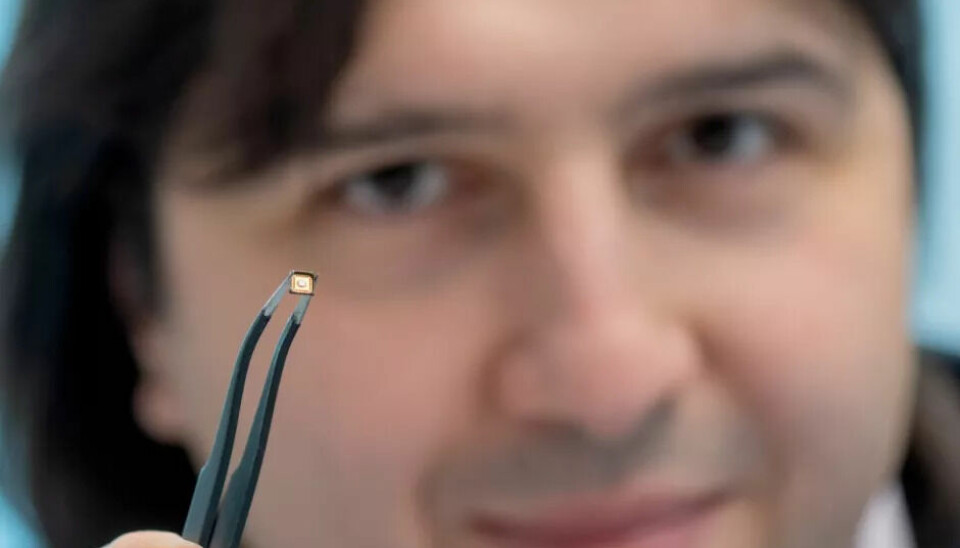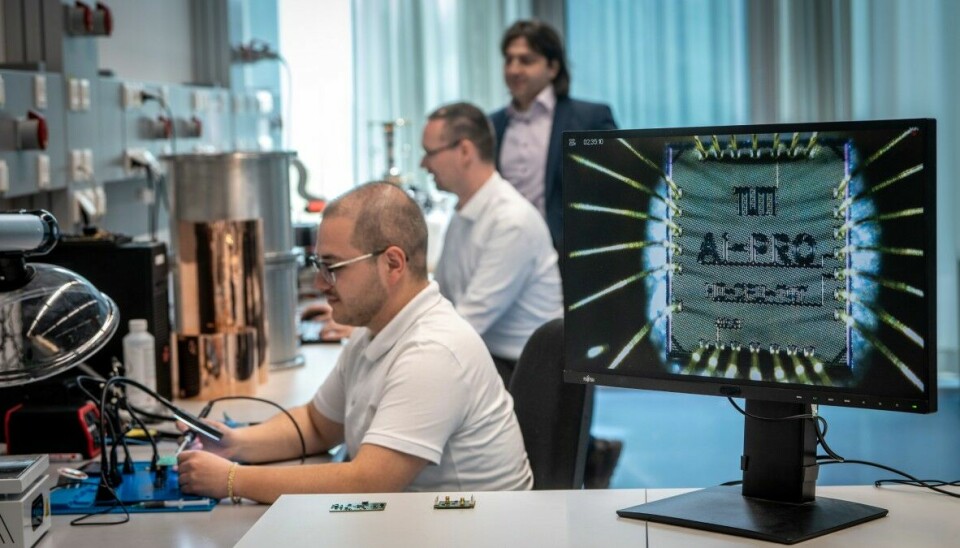Revolutionary AI chip protects against data theft
TUM chip thinks like a brain - without the cloud

How does AI work without the cloud? The new 'AI Pro' chip from TU Munich computes offline, securely, and efficiently - inspired by the human brain.
A novel AI chip developed at the Technical University of Munich (TUM) operates without the usual need for an internet connection or cloud servers. The chip "AI Pro," designed by Prof. Hussam Amrouch, works based on the model of the human brain. Its innovative neuromorphic architecture helps it perform calculations on-site, making it cyber-secure. Additionally, it consumes up to ten times less energy.
The professor for AI processor design at TUM has already had the first prototypes manufactured at the semiconductor manufacturer Global Foundries in Dresden. Unlike conventional chips, the computing and storage units in "AI Pro" are combined. This is possible because the chip operates on the principle of "hyperdimensional computing": this means it recognizes similarities and patterns but does not require millions of data sets to learn.
Neuromorphic architecture: the brain as a blueprint
Instead of being shown countless pictures of cars, as in deep learning with conventional AI chips, this chip combines various information, such as that a car has four wheels, usually drives on the road, and can have different shapes. "Humans also abstract and learn through similarities," explains Amrouch, just like the new chip.
What makes 'AI Pro' more energy-efficient than others?
The research team with Prof. Hussam Amrouch in the background. In the foreground, a view of the chip under the microscope. An important advantage of brain-like thinking: it saves energy. For a defined training of a task, a 'sample', the new chip consumed 24 microjoules, while comparable chips required ten to a hundred times more energy - 'a record value', comments Amrouch. 'This mix of modern processor architecture, algorithm specialization, and novel data processing makes the AI chip something special.'

This also sets it apart from all-rounders like the chips from industry giant Nvidia. 'While Nvidia has built a platform that relies on cloud data and promises to solve every problem, we have developed an AI chip that enables custom solutions. There is an enormous market here.'
How does AI work without cloud connectivity?
The chip, which is one square millimeter in size and currently costs 30,000 euros, carries around 10 million transistors and is therefore not quite as densely packed and not quite as powerful as Nvidia chips with 200 billion transistors. But that's not primarily what Amrouch is concerned with. His team has specialized in AI chips that process data directly on-site. This means they don't have to be sent to the cloud, processed there along with millions of other datasets, and sent back again. This saves time, server computing capacities, and reduces the CO₂ footprint of AI.
What applications does the new technology offer?
Additionally, the chips are tailored for specific applications. "This makes them very efficient," chip expert Amrouch is convinced. For example, they focus on processing a person's vital data via a smartwatch or supporting the navigation of a drone. Since these personal and sometimes sensitive data remain on the device, the question of a stable internet connection and cybersecurity does not even arise. The chip expert is convinced: "The future belongs to the people who own the hardware."